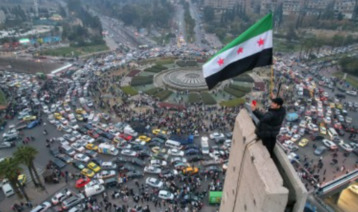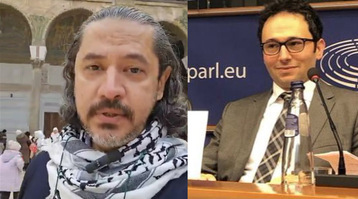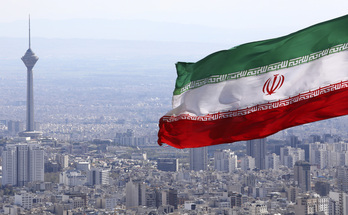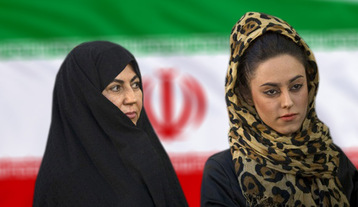-
Labour crashes to humiliating byelection defeat in Hartlepool
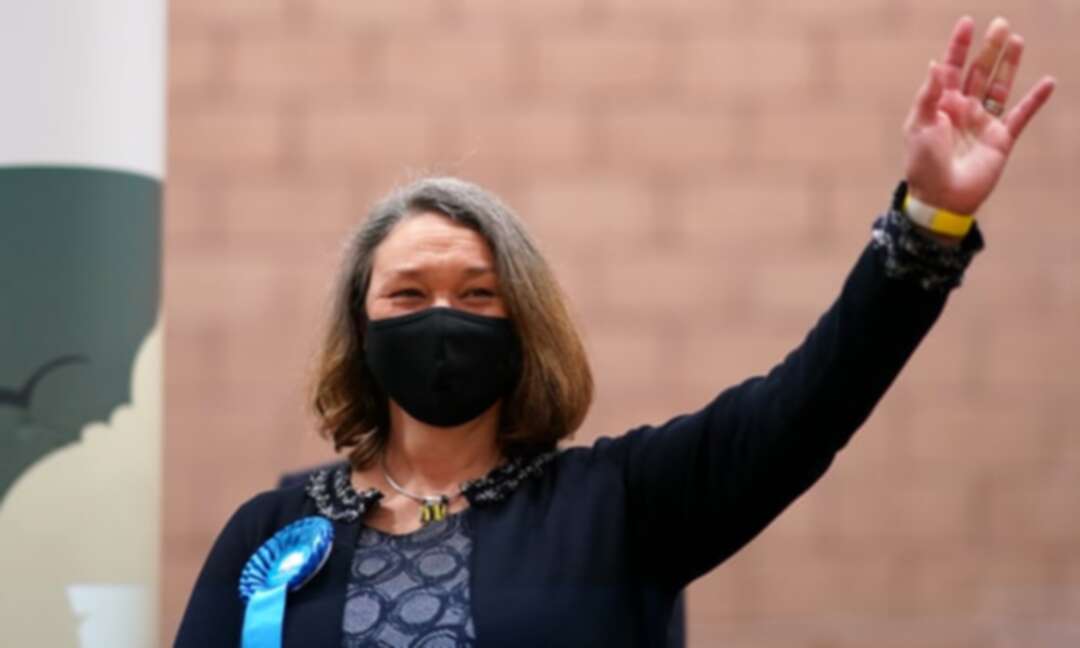
Keir Starmer faces uncomfortable questions as party loses seat to Tories for the first time in 62 years
Labour has suffered a humiliating byelection defeat in Hartlepool after the party’s former heartland town elected a Conservative MP for the first time in 62 years.
The Tories won 15,529 votes, with Labour recording 8,589, according to official results. Jill Mortimer defeated the Labour candidate, Dr Paul Williams, by 6,940 votes. Mortimer won the byelection with more than half of the votes cast (51.88%) and a swing from Labour of almost 16%.
The loss of Hartlepool, which was declared at about 7am on Friday, leaves Labour’s leader, Keir Starmer, facing huge questions over the future direction of his party as yet more of its lifelong supporters vote for Boris Johnson’s Conservatives.
It is only the second time in nearly 40 years that a governing party has taken a seat from the opposition.
Speaking to reporters following the count, Jill Mortimer said: “I’m just overwhelmed by the support of the people of Hartlepool. It confirms what I heard on the doorstep - they just want positive change, and that’s what we’re going to bring them.”
She added: “This town needs to be regenerated, it has been in decline for a long time.”
Labour’s candidate Williams rushed out of the election count by the back door and was whisked off in a red Ford Fiesta.
He made no comment when asked repeatedly if he had anything to say to the people who voted for him, or whether Labour had any way back to office in this corner of north-east England.
The defeat came amid early signs of a torrid night for Labour in the local elections in England, with voters deserting the party for the Conservatives, Liberal Democrats and in some cases the Green party. Ballots continue to be tallied up across England, Scotland and Wales after the “Super Thursday” polls – the largest test of political opinion outside a general election.
Labour appeared to concede defeat in Hartlepool shortly before 3am. Jim McMahon, the shadow minister who ran the party’s byelection campaign, said: “It’s pretty clear from the way that the ballots are landing that we are not close to winning this despite our best endeavours.”He said Labour had “held our own” and ran a “good campaign with integrity and a very positive vision for Hartlepool” but that it was for Hartlepudlians to choose “which vision they want to get behind”.
Asked whether he was officially conceding defeat, McMahon told Sky News: “We haven’t got over the line, that’s quite clear from the ballots. To what extent is too early to tell, but that’s pretty clear.
“For me, it’s about reflecting on what was a very difficult campaign to begin with … I’ve been here six weeks; I’ve enjoyed the campaign; I’ve enjoyed the town and its people and I’ve enjoyed working alongside our fantastic volunteers.”
On Friday morning, a Labour source said the party had not changed sufficiently.
“The message from voters is clear and we have heard it. Labour has not yet changed nearly enough for voters to place their trust in us. We understand that. We are listening. And we will now redouble our efforts.”
The byelection was a key test of Labour’s appeal to its traditional heartlands, just over a year after Starmer became leader with a pledge to rebuild the “red wall”.
However, Labour struggled to combat a deep disillusionment with the party in Hartlepool, a constituency it has held since 1964, and a historic shift in allegiances towards a Conservative party once considered toxic in north-east England.
The mood in the Labour camp overnight was dismal. Starmer was understood to have been told of the outlook at about midnight, shortly after his team arrived at its Hartlepool headquarters. One member of the team said it became clear at around midnight – while the votes were still being validated – that the Tories had racked up a “healthy majority”.
One Labour source said they expected the Conservatives to win by as many as 5,000 to 6,000 votes. Turnout for the contest was 42.55%, the lowest in years, although byelections generally record fewer voters.
There were grim faces all around the Mill House leisure centre, where the count was held under strict social distancing measures, as the morning wore on – even when a giant inflatable Boris Johnson was erected outside the sports hall at 4am.
https://twitter.com/JoshHalliday/status/1390509667927855107
The result in Hartlepool comes after several neighbouring Labour constituencies have fallen one by one to the Conservatives in recent years – six in the last general election – with post-industrial areas forming the bedrock of Johnson’s 81-seat majority in the Commons.
Labour has seen its share of the vote ebb away in Hartlepool over the past 15 years, though the switch to the Conservatives has been accelerated by Brexit. The town where it was once said people could “weigh Labour votes, not count them” has blamed Labour for the loss of steelmaking jobs as well as cuts to the local hospital and police – even though those were largely due to the Conservatives’ austerity programme.
There was unhappiness that Labour selected the pro-remain former neighbouring MP, Paul Williams, as its candidate in a town where 70% voted to leave the European Union.
Labour had been defending a narrow 3,595-vote majority in a town it has held since Harold Wilson was in Downing Street nearly 60 years ago. The byelection was called after Mike Hill, the MP since 2017, stood down over sexual harassment allegations, which he denies.
Elsewhere in England, the Tories seized Redditch and Nuneaton & Bedworth councils in the Midlands from Labour, along with Harlow in Essex, while Starmer’s party suffered heavy losses across north-east local authorities.
Results from the Holyrood election – where the issue of Scottish independence was a main feature in the campaign – will come through later on Friday and Saturday.
source: Josh Halliday
Levant
You May Also Like
Popular Posts
Caricature
BENEFIT AGM approves 10%...
- March 27, 2025
BENEFIT, the Kingdom’s innovator and leading company in Fintech and electronic financial transactions service, held its Annual General Meeting (AGM) at the company’s headquarters in the Seef District.
During the meeting, shareholders approved all items listed on the agenda, including the ratification of the minutes of the previous AGM held on 26 March 2024. The session reviewed and approved the Board’s Annual Report on the company’s activities and financial performance for the fiscal year ended 31 December 2024, and the shareholders expressed their satisfaction with the company’s operational and financial results during the reporting period.
The meeting also reviewed the Independent External Auditor’s Report on the company’s consolidated financial statements for the year ended 31 December 2024. Subsequently, the shareholders approved the audited financial statements for the fiscal year. Based on the Board’s recommendation, the shareholders approved the distribution of a cash dividend equivalent to 10% of the paid-up share capital.
Furthermore, the shareholders endorsed the allocation of a total amount of BD 172,500 as remuneration to the members of the Board for the year ended 31 December 2024, subject to prior clearance by related authorities.
The extension of the current composition of the Board was approved, which includes ten members and one CBB observer, for a further six-month term, expiring in September 2025, pending no objection from the CBB.
The meeting reviewed and approved the Corporate Governance Report for 2024, which affirmed the company’s full compliance with the corporate governance directives issued by the CBB and other applicable regulatory frameworks. The AGM absolved the Board Members of liability for any of their actions during the year ending on 31st December 2024, in accordance with the Commercial Companies Law.
In alignment with regulatory requirements, the session approved the reappointment of Ernst & Young (EY) as the company’s External Auditors for the fiscal year 2025, covering both the parent company and its subsidiaries—Sinnad and Bahrain FinTech Bay. The Board was authorised to determine the external auditors’ professional fees, subject to approval from the CBB, and the meeting concluded with a discussion of any additional issues as per Article (207) of the Commercial Companies Law.
Speaking on the company’s performance, Mr. Mohamed Al Bastaki, Chairman BENEFIT , stated: “In terms of the financial results for 2024, I am pleased to say that the year gone by has also been proved to be a success in delivering tangible results. Growth rate for 2024 was 19 per cent. Revenue for the year was BD 17 M (US$ 45.3 Million) and net profit was 2 Million ($ 5.3 Million).
Mr. Al Bastaki also announced that the Board had formally adopted a new three-year strategic roadmap to commence in 2025. The strategy encompasses a phased international expansion, optimisation of internal operations, enhanced revenue diversification, long-term sustainability initiatives, and the advancement of innovation and digital transformation initiatives across all service lines.
“I extend my sincere appreciation to the CBB for its continued support of BENEFIT and its pivotal role in fostering a stable and progressive regulatory environment for the Kingdom’s banking and financial sector—an environment that has significantly reinforced Bahrain’s standing as a leading financial hub in the region,” said Mr. Al Bastaki. “I would also like to thank our partner banks and valued customers for their trust, and our shareholders for their ongoing encouragement. The achievements of 2024 set a strong precedent, and I am confident they will serve as a foundation for yet another successful and impactful year ahead.”
Chief Executive of BENEFIT; Mr. Abdulwahed AlJanahi commented, “The year 2024 represented another pivotal chapter in BENEFIT ’s evolution. We achieved substantial progress in advancing our digital strategy across multiple sectors, while reinforcing our long-term commitment to the development of Bahrain’s financial services and payments landscape. Throughout the year, we remained firmly aligned with our objective of delivering measurable value to our shareholders, strategic partners, and customers. At the same time, we continued to play an active role in enabling Bahrain’s digital economy by introducing innovative solutions and service enhancements that directly address market needs and future opportunities.”
Mr. AlJanahi affirmed that BENEFIT has successfully developed a robust and well-integrated payment network that connects individuals and businesses across Bahrain, accelerating the adoption of emerging technologies in the banking and financial services sector and reinforcing Bahrain’s position as a growing fintech hub, and added, “Our achievements of the past year reflect a long-term vision to establish a resilient electronic payment infrastructure that supports the Kingdom’s digital economy. Key developments in 2024 included the implementation of central authentication for open banking via BENEFIT Pay”
Mr. AlJanahi concluded by thanking the Board for its strategic direction, the company’s staff for their continued dedication, and the Central Bank of Bahrain, member banks, and shareholders for their valuable partnership and confidence in the company’s long-term vision.
opinion
Report
ads
Newsletter
Subscribe to our mailing list to get the new updates!



